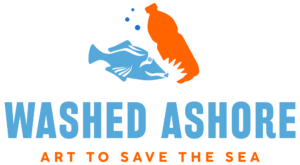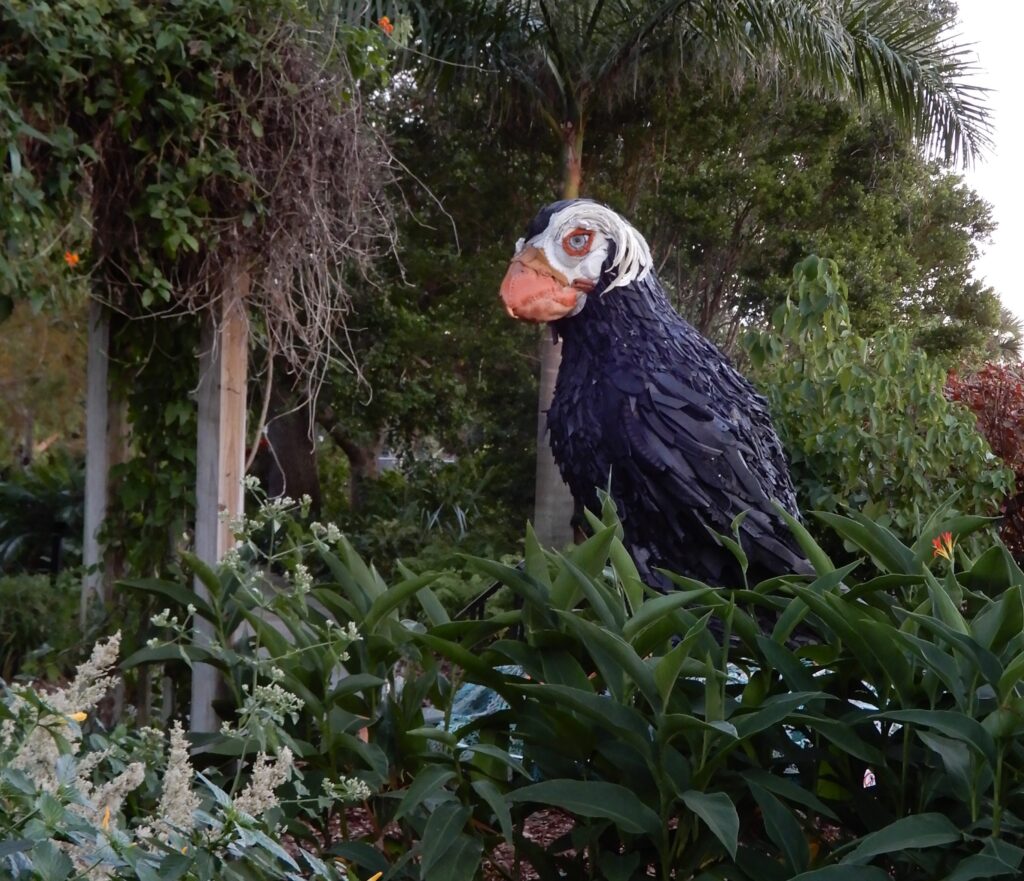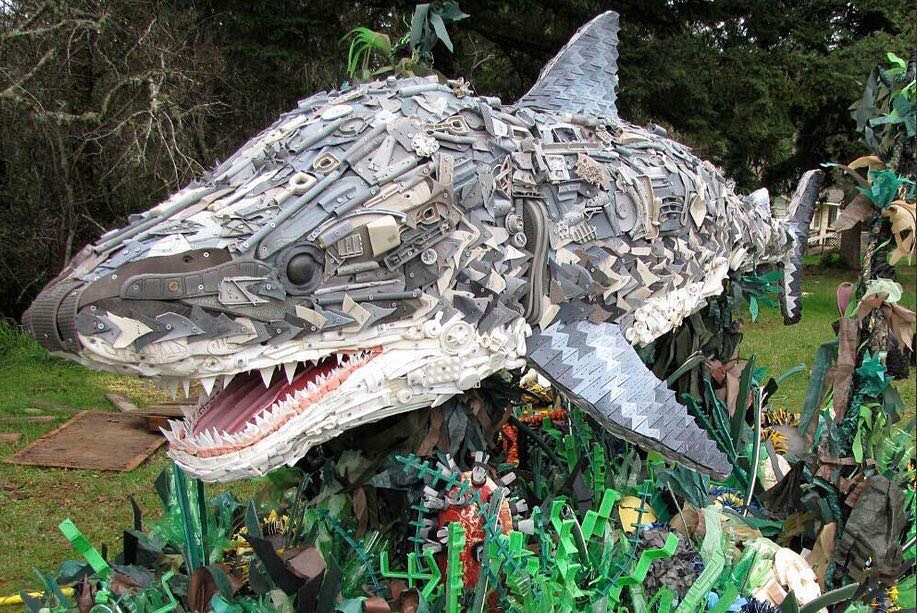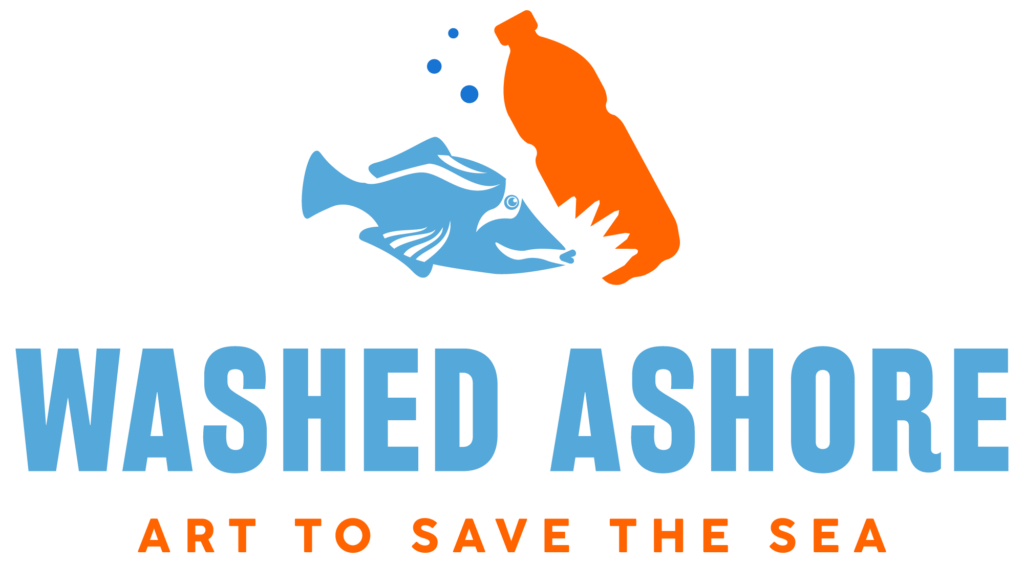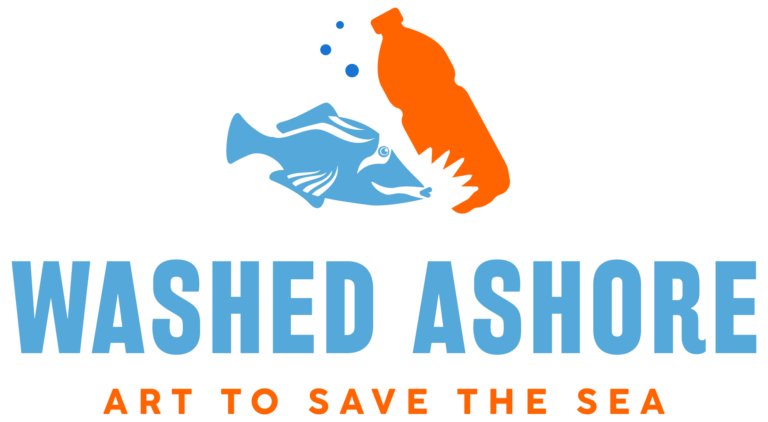Animal Advocates
Washed Ashore is passionate about ocean conservation and education. Designed for educators, our learning hub provides curriculum that inspires.
Meet the Washed Ashore Animal Advocates
The Washed Ashore Animal Advocate sculptures are constructed entirely from debris that has washed up on our shores. Each of these giant sculptures represents the sea life affected by plastic pollution. These unique art pieces are part of a national traveling exhibition that includes educational signage and programs that encourage reducing, refusing, reusing, repurposing and recycling.
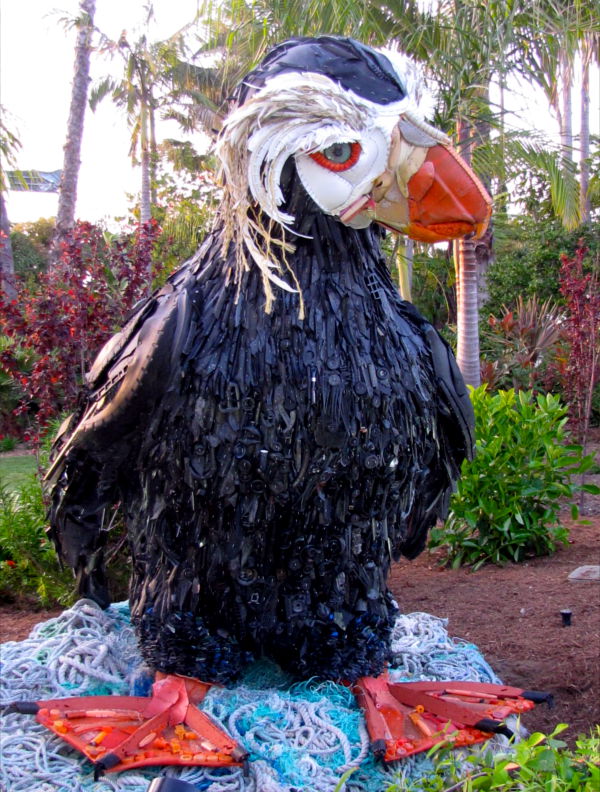
Sebastian James the Puffin
Tufted Puffins are diving birds and swim with their wings underwater while catching fish, their primary food source. Like many ocean birds, puffins have been known to mistake plastic for food. This fills them up with plastic and can lead to starvation. Entanglement in abandoned fishing gear can also be a deadly encounter. Sebastian James the Puffin is made of marine debris items collected from beaches by volunteers including:
- bottle caps
- flip flops
- shoe soles
- tires
- disposable lighters
- toy truck wheels
- car oil bottles
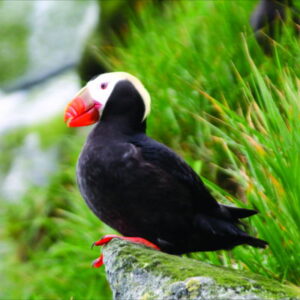
Leave No Trace!
Help preserve the environment. The next time you travel to the beach, river, or any wilderness, leave only footprints and take only photographs, memories, and trash home. Pack it in and pack it out.
Herman the Sea Turtle
Sea Turtles
Sea turtles have been swimming through the world’s oceans for 100 million years. Nearly all species of sea turtle are now classified as threatened or endangered. Humans are primarily responsible for the decline in their numbers. Plastic bags are one of the most common marine debris items in global oceans. They can be mistaken as jellyfish and eaten by sea turtles and other animals. Herman the Sea Turtle is made of marine debris items collected from beaches by volunteers including:
- water bottles
- boots
- shot gun shells
- bottle caps
- fake flowers
- detergent bottles
- brown shoe soles
- shovels
- plastic lighters
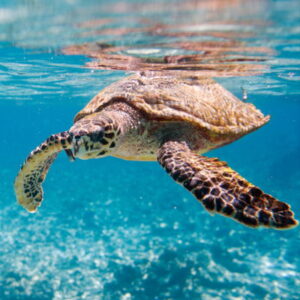
Use a Reusable
The United States uses more plastic water bottles than any other country in the world, despite the fact that our tap water is almost universally safe to drink. Use reusable water bottles to save resources and help the environment in a big way.
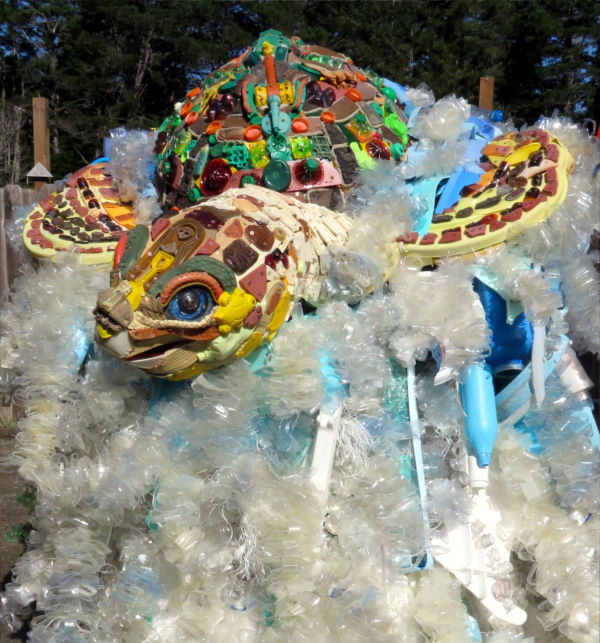
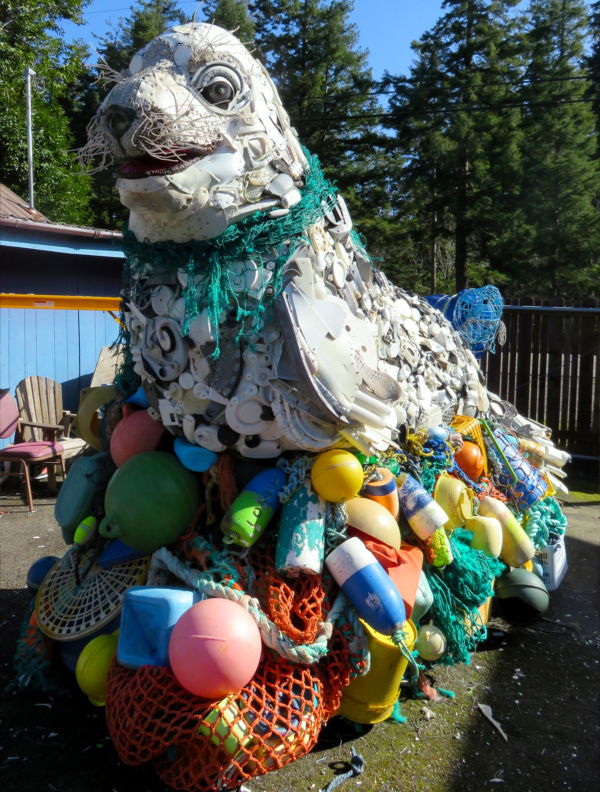
Lidia the Seal
Seals are commonly found near populated coastlines around the world, and often encounter plastic pollution. Whether they directly ingest bits of plastic, consume fish that have eaten small plastic fragments, or become entangled in packing straps or nets, the harm is real and can be deadly. Entanglement in plastic rope, rubber rings and strapping is a common threat for these curious creatures. Lidia the Seal is made of marine debris items collected from beaches by volunteers including:
- a variety of lids (hence the name Lidia)
- buoys
- netting
- rice paddles
- shoes
- flip flops
- beach toys
- wheels
- umbrella hands
- toothbrushes
- plastic lattice
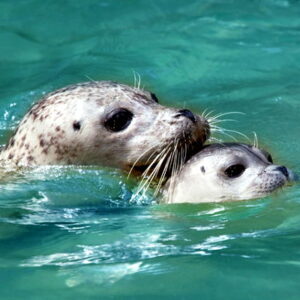
Plastics are Forever
The next time you buy a plastic product, consider how long the plastic is going to last. If it cannot be recycled, find a creative way to reuse or repurpose it and avoid adding to the waste stream. Just like Washed Ashore, you can repurpose discarded plastics.
Octavia the Octopus
The Octopus
Although they live an average of just four years, Giant Pacific Octopuses can grow over 20 feet in length. The octopus is one of the most intelligent species in the ocean. It has the ability to problem solve, use tools and communicate by changing colors. In order to keep these incredible creatures healthy, we need to keep their environment clean. Octavia the Octopus is made of marine debris items collected from beaches by volunteers including:
- disposable lighters
- buoys
- plastic chair
- bottle caps
- dog leash
- beach toys
- plastic cooler
- plastic goose decoy
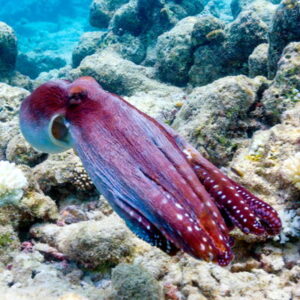
Every Action Counts
Say thank you to the ocean during your next visit by bringing a bag or bucket for cleaning up. If you bring something to the beach, take it with you when you leave.
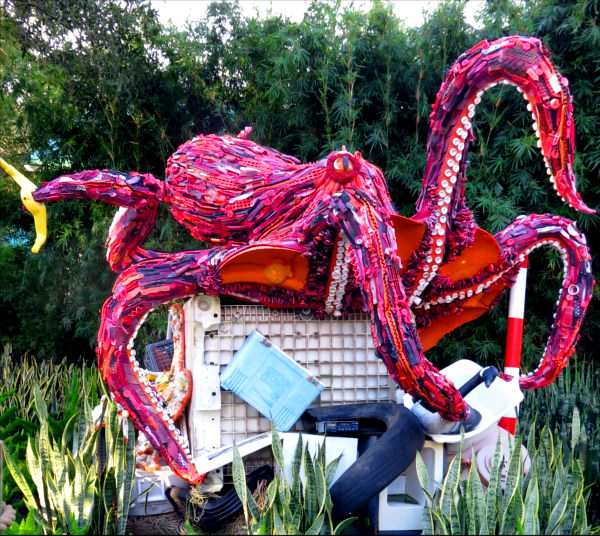
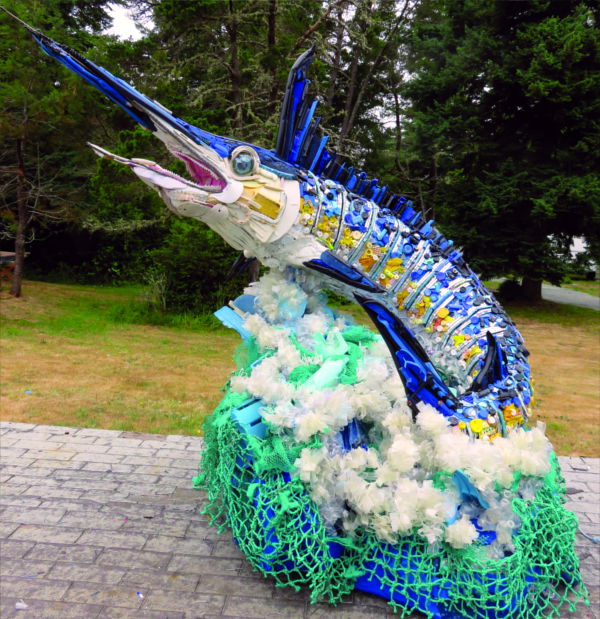
Flash the Marlin
Blue Marlin
Marlin are some of the fastest swimmers in the world and a highly sought after sport fish. Blue marlin, the most tropical of the 10 marlin species, cruise through the open ocean often covering hundreds of miles in their migration patterns. During their travels, they pass through waters inundated with plastic pollution. Clean water is vital to keeping marlin healthy. Flash the Marlin is made of marine debris items collected from beaches by volunteers including:
- sunglasses
- a toy fish
- toothbrushes
- woven beer cans
- 4 fishing lures
- 3 fishing poles
- a toilet seat
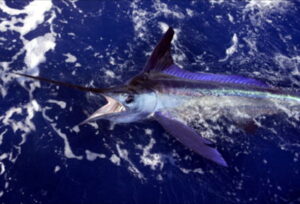
Reduce Your Use!
The best way of keeping plastic out of the ocean is reducing the amount of plastic we produce on land. Reduce your use of single use plastics:
- carry a reusable water bottle
- bring a reusable bag
